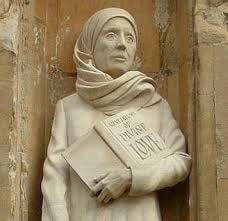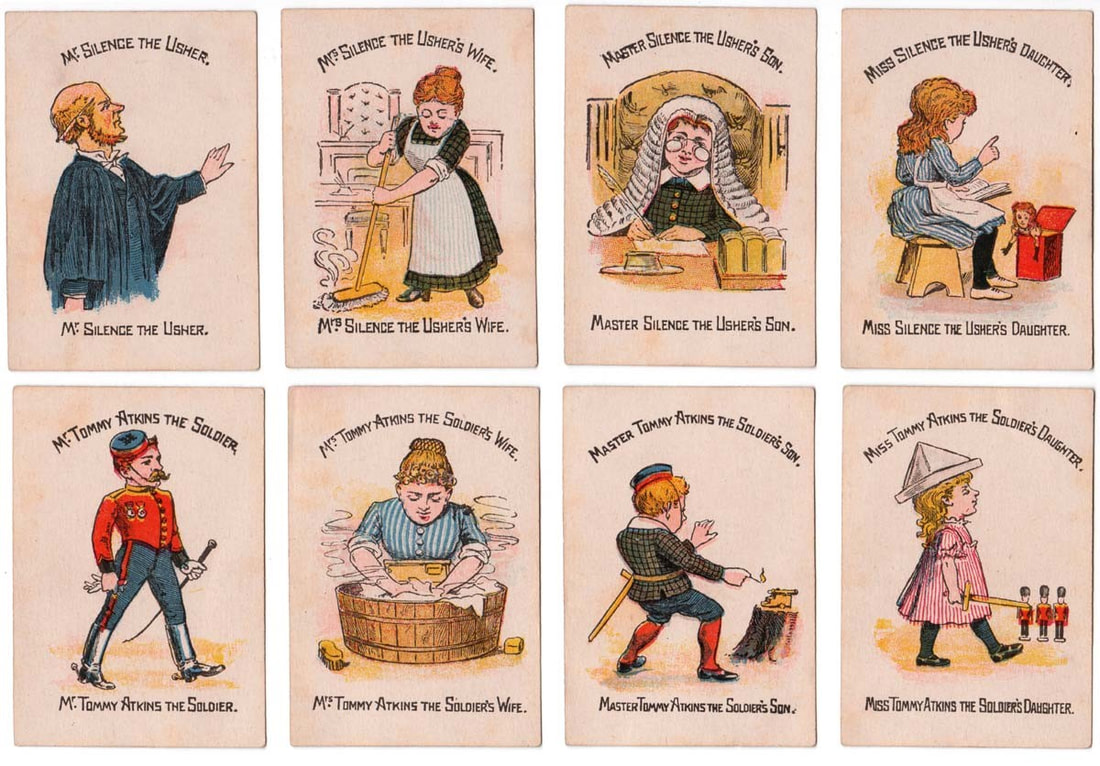|
It’s interesting isn’t it, what we remember from our childhood? I have found memories of playing traditional games like ‘Snakes & Ladders’, Ludo and ‘Happy Families’. Do you remember ‘Happy Families’? This is a card game where the object is to collect sets of fictional families of four, most often based on occupation types (see above). These games were always great fun (so long as my Dad won!). One of the things I remember from my early school days was sitting, cross-legged, on the floor for morning assembly. I have a very clear recollection of hearing the story of the ‘Lame’ man being lowered through the roof of a house. I am sure that the events recorded, in the Gospel reading for today, are well known to many of you; Jesus was teaching the people and they gathered in such large numbers that there was no room left inside the house where he was teaching, not even outside the door. Some men came carrying a paralysed man but could not get inside, so they made an opening in the roof above Jesus and then lowered the man down. When Jesus saw their faith, he said to the paralysed man, "Son, your sins are forgiven." Some of the teachers of the law interpreted this as blasphemy, since God alone can forgive sins. Jesus said to them, "Why are you thinking these things? Which is easier: to say to the paralytic, 'Your sins are forgiven,' or to say, 'Get up, take your mat and walk'? But that you may know that the Son of Man has authority on earth to forgive sins …" He says to the man "...get up, take your mat and go home." If I am honest, I have to say that it was the lowering of the man through the roof, that at that time, seemed to be the most interesting aspect of this story. As I read through the Apostle Luke’s account today it is the attitudes of the people listening and watching Jesus that strikes me. Firstly, we have two basic groups of Jewish people. The first group was made of those who enjoyed listening to Jesus. They saw him as a wise teacher and prophet. Then we have the Pharisees and teachers of the law. They came to listen too, but not to learn. St Luke reports that the Pharisees and teachers of the law were sitting whilst Jesus was teaching (v17). In Jewish culture of the time, teachers sat and taught while students stood. Probably Jesus was sitting as well, but the Pharisees wanted to be seen as equals to Jesus, as ones who did not need to learn anything from Him, but as those who would listen to what He taught in order to find fault and judge the validity of the teaching. Later, in response to Jesus telling the paralysed man that his sins are forgiven, these Pharisees and teachers see Jesus as a Blasphemer (v21). They came to find fault with Jesus’ teachings and that is just what they did! We also have those who came, not so much for themselves, but for their paralysed friend, hoping that he would be healed by Jesus. It is clear however, that they saw Jesus as more than simply a healer. In v20 we read that Jesus “saw their faith”. These men placed their faith, and their friend, in the hands of Jesus. They believed the words Jesus taught and that the Kingdom of God was at hand. And of course, we have the paralysed man himself who was prepared, not only to allow his friends to help and intercede for him but was also willing to obey our Lord’s instructions. Did he see Jesus as more than a ‘Healer’ too? Yes, I think so. When Jesus tells him to “arise, take up your bed, and go to your house”,(v24) that is precisely what he does – with unquestioning faith! And of course, the healing received was, in all probability, so much greater than expected. Not only a physical transformation, with atrophied muscle strengthened and rebuilt but spiritual too, with his sins being forgiven (v21). They all saw Jesus, they all heard Jesus, they all witnessed his ministry. Jesus the teacher, Jesus the healer, Jesus the prophet, even Jesus the blasphemer! It’s a little like ‘Happy families’ identifying and collecting occupations! How we see Jesus is no game! Amongst other things Jesus has been thought of as a healer, a moral teacher, a reformer, an apocalyptic preacher, a radical, a revolutionary, a Jew, a prophet, a social revolutionary, and, ultimately and most importantly, the Messiah. St Peter wrote, “whom having not seen you love” (1 Pet 1:8). And it’s true, we haven’t seen Jesus with our physical eyes. But all who belong to Him do see Him (Heb 2:9), for we see with spiritual “eyes” (the eyes of understanding, Eph 1:18). Whatever our thoughts are occupied with, that reflects the kind of life we lead. If our thoughts are quiet and peaceful, kind and loving, there’s peace for us; and if they are negative, there’s disquiet and restlessness. Whatever our thoughts about Jesus, how we see him, will reflect in the relationship we have with him. If we see him as a judge, we will look to be judged. If we see him as a father, we will struggle to have a safe and loving relationship with him if we have suffered abuse at the hands of our father.  There are many who can help us to ‘open to eyes of our understanding who can help us to see and understand our Lord. Few better than Julian of Norwich; “And after this our Lord shewed Himself more glorified, as to my sight, than I saw Him before [in the Shewing] wherein I was learned that our soul shall never have rest till it cometh to Him, knowing that He is fulness of joy, homely and courteous, blissful and very life. Our Lord Jesus oftentimes said: I it am, I it am: I it am that is highest, I it am that thou lovest, I it am that thou enjoyest, I it am that thou servest, I it am that thou longest for, I it am that thou desirest, I it am that thou meanest, I it am that is all. I it am that Holy Church preacheth and teacheth thee, I it am that shewed me here to thee. The number of the words passeth my wit and all my understanding and all my powers. And they are the highest, as to my sight: for therein is comprehended—I cannot tell, — but the joy that I saw in the Shewing of them passeth all that heart may wish for and soul may desire. Therefore, the words be not declared here; but every man after the grace that God giveth him in understanding and loving, receive them in our Lord's meaning” And from the time that it came to me, I often desired to know what our Lord’s meaning was. After fifteen years or more, I received an answer, saying to me: ‘What, would you like to know the Lord’s meaning in this thing? Know it well, love was his meaning’.
0 Comments
Leave a Reply. |
Parish Blog
This mainly contains homilies and messages from our priests, although there is some scope to share thoughts and interesting articles which we may want to share with others Archives
October 2022
Categories |

 RSS Feed
RSS Feed